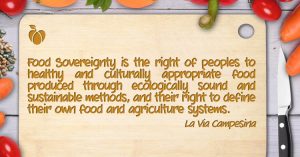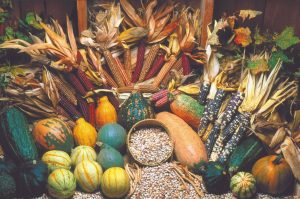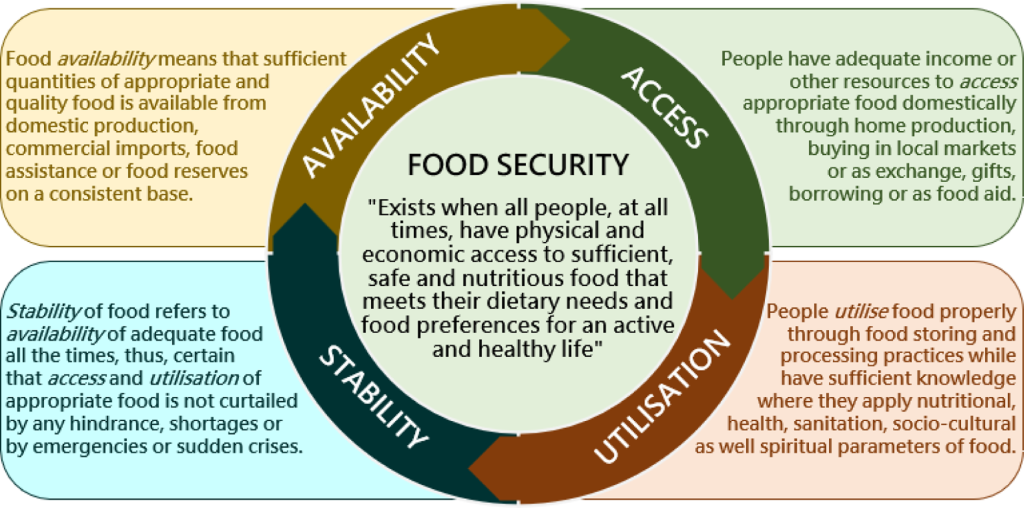What is Food Sovereignty?
The definition put forth by the Global agricultural authorities is: “Food sovereignty is a food system in which the people who produce, distribute, and consume food also control the mechanisms and policies of food production and distribution. This stands in contrast to the present corporate food regime, in which corporations and market institutions control the global food system. Food sovereignty emphasizes local food economies, sustainable food availability, and centers culturally appropriate foods and practices.”
 Food sovereignty was an innovative concept coined in 1996 by La Via Campesina, a global movement of farmers, to describe their vision for a better food future. La Via Campesina defines food sovereignty as: “the right of peoples to healthy and culturally appropriate food produced through ecologically sound and sustainable methods, and their right to define their own food and agriculture systems.”
Food sovereignty was an innovative concept coined in 1996 by La Via Campesina, a global movement of farmers, to describe their vision for a better food future. La Via Campesina defines food sovereignty as: “the right of peoples to healthy and culturally appropriate food produced through ecologically sound and sustainable methods, and their right to define their own food and agriculture systems.”
What Food Sovereignty actually means to farmers today is a means by which they are able to reclaim power over their own personal food production.
 What Food Sovereignty means to indigenous farmers is a returning to values and practices of their forefathers, such as in the planting of the three sisters (corn, bean and squash). In an article written by Kaya Hill, she states: “For Indigenous peoples, land, water and food make up the essence of what it means to be Indigenous. Indigenous peoples’ relationship to their food and the land and waters from which it comes from has been skewed since the time of first contact. Lands and food are at the core of what it means to be Indigenous. “Indigenous food systems include all of the land, soil, water, and air, as well as culturally important plant, fungi, and animal species that have sustained Indigenous peoples over thousands of years of participating in the natural world,” (Food Secure Canada, 2013). Indigenous food sovereignty is important because Indigenous foods are the natural foods, and they are gifts from Creator that will always grow best according to the place they are based on. Foods and food systems that are Indigenous to a place thrive and are most sustainable as a food resource where they are originally from. We are what we eat, but we are also where we eat as people who are Indigenous to this place.”
What Food Sovereignty means to indigenous farmers is a returning to values and practices of their forefathers, such as in the planting of the three sisters (corn, bean and squash). In an article written by Kaya Hill, she states: “For Indigenous peoples, land, water and food make up the essence of what it means to be Indigenous. Indigenous peoples’ relationship to their food and the land and waters from which it comes from has been skewed since the time of first contact. Lands and food are at the core of what it means to be Indigenous. “Indigenous food systems include all of the land, soil, water, and air, as well as culturally important plant, fungi, and animal species that have sustained Indigenous peoples over thousands of years of participating in the natural world,” (Food Secure Canada, 2013). Indigenous food sovereignty is important because Indigenous foods are the natural foods, and they are gifts from Creator that will always grow best according to the place they are based on. Foods and food systems that are Indigenous to a place thrive and are most sustainable as a food resource where they are originally from. We are what we eat, but we are also where we eat as people who are Indigenous to this place.”
For Amish and Mennonite farmers it means being able to hold onto and retain their traditional and generational methods of farming.
In an article by Nichole Doll for CPAWS in February 2021, she states: “Food sovereignty aims to redefine how we eat. In order to be food-secure, communities must create a closed-loop food system. This means eating locally, which supports small-scale community businesses. It also emphasizes using agro-ecology and traditional techniques to bolster biodiversity and land quality. The benefits are many: eating locally has a low carbon footprint, and acts as a safety net for communities with tenuous grocery access. There is also a massive social impact; eating locally empowers the community, and can strengthen the community’s culture and tie to the land.”
For farmers concerned with organic, ecological and permaculture agricultural practices, it means being able to conduct their day to day farming practices without chemicals, herbicides and pesticides without intervention from government protocols, rules, regulations and certification fees.
When food can be grown by agricultural, farming and gardening methods that provide nourishment and security without damaging the land, it makes us stronger, healthier, and more connected to the land, to our culture and to each other. That’s the power of food.
When the power of food is usurped by governments and corporations that put profits first then other considerations that are important to farmers and their community —like making sure food is healthy, accessible to all and sustainable— take a backseat to priorities held by corporate shareholders. Farmers’ incomes deteriorate, our diets worsen, and the planet suffers. Ask yourself; should something as natural as having healthy food to sustain yourself, your family and your community be compromised by governments and corporations?
Another term coined by governments is “Food Security” which is the concept that individuals, communities, and societies have consistent and secure access to food. Whether there is access to food or not, the question is – is the food itself nutritious? Most times, ‘food security’ just means that foods, whether imported or are mass produced and cheap are readily available with no concern about freshness or nutrition.

In other words, food sovereignty rises above food security by putting producers at the centre of the food systems instead of at the bottom. It recognizes food as a right for the good of the community, not as a commodity. It identifies sustainability as essential, and promotes the use of agroecology. Food sovereignty requires bringing all voices to the table, sharing land, seeds, water, credit and other resources equitably.
The 6 Pillars of Food Sovereignty
- Focuses on food for people
- Values food providers
- Localizes food systems
- Puts control locally
- Builds knowledge and skills
- Works with nature
For more details, download the PDF from the above link on the 6 Pillars of Food Sovereignty or go to the Declaration of the Forum for Food Sovereignty, Nyéléni 2007
